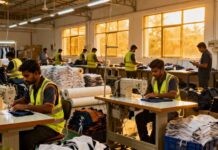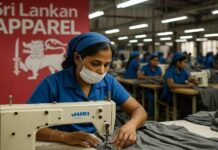New Delhi: The Indian government has enacted stricter import regulations, making Bangladeshi ready-made garments (RMG) more expensive to enter the Indian market. Effective immediately, these imports will now be allowed exclusively through Kolkata and Nhava Sheva sea ports, significantly impacting costs and trade dynamics.
Key Highlights of the Decision
- No More Land Route Imports: Along with garments, other goods such as plastics, wooden furniture, and certain beverages will not be allowed entry via land customs stations in northeastern states like Meghalaya, Assam, Tripura, and Mizoram, as well as select transit points in West Bengal.
- Impact on Trade: India imported ready-made garments worth $634 million from Bangladesh in 2024, with most of it transported through land routes. These new restrictions are set to disrupt this pattern and increase costs for Bangladeshi exporters.
- Response to Bangladesh’s Restrictions: The decision comes after Bangladesh imposed curbs on Indian cotton yarn exports, a move that previously affected Indian textile manufacturers. Cotton yarn traditionally makes up nearly 45% of India’s textile exports.
- Domestic Industry Benefits: According to the Confederation of Indian Textile Industry (CITI), the regulation will likely create opportunities for Indian manufacturers by curbing the influx of low-cost foreign apparel. This is seen as a step towards preventing the dumping of foreign-made goods and enhancing India’s self-reliance in textiles.
Industry Reactions
Rakesh Mehra, Chairman of CITI, remarked that the government’s decision is a strategic response to ensure fair trade and boost local industry. Similarly, Santosh Katariya, President of the Clothing Manufacturers Association of India (CMAI), highlighted that the policy addresses long-standing concerns of domestic manufacturers, particularly small and medium enterprises (MSMEs), who have faced challenges due to the availability of cheaper imported alternatives.
Future Outlook
Indian manufacturers are optimistic about leveraging this policy to increase domestic production. Industry leaders also call for complementary measures to enhance capacity-building initiatives and improve the ease of doing business, ensuring long-term benefits for the Indian textile value chain.
This decisive move not only rebalances trade relations but also underscores India’s commitment to fostering a self-reliant economy.

































